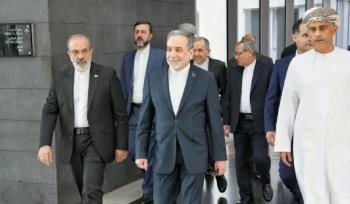Alwaght- The rocket fire from Lebanon, Gaza, and Syria by the resistance groups over the weekend for several hours unleashed hell to the Israelis, making the delusive Israeli leaders think that what they feared the most for years has come true and now they are in the resistance’s encirclement.
What happened a week ago was a magnificent show of synergy, coordination, and cooperation among the resistance groups, proving that they now make the most powerful regional coalition in the developments and in new regional security order; a coalition whose main goal is liberating Palestine and eliminating the Israeli regime from the region’s map.
The new and important issue in the recent attacks is not the amount of damage and casualties to the regime in the recent attack, which were not aimed, but the very important symbolic messages that it contained and conveyed to the Israeli enemy. Here are three of them:
1. Support and protection umbrella
A new and highly important reality that was sent by the multi-fronted rocket fires on the Israeli regime was the Israeli fear and incapablity of a direct military confrontation with Hezbollah and even incapability of launching a new massive attack on Gaza. Not long ago, the hardline Israeli officials have been repeatedly threatening to scrap the gas deal with Lebanon and launch an attack on the country. However, the rocket fire from southern Lebanon, which apparently came with a green light from Hezbollah, proved that not only Tel Aviv has no power to wage a new large-scale war, but also the deterrence equations have now changed in a way that Hezbollah protection umbrella can provide security guarantees for other resistance groups, to an extent that the Israelis found it in their calculations impossible to launch massive attacks on positions of the Lebanon-based Palestinian groups for possibility of a clash with Hezbollah.
This situation had earlier taken place in the occupied territories in another way. In the Israeli raids on the Sheikh Jarrah neighborhood of Al-Quds (Jerusalem) in May 2021 that led to destruction of people’s homes, Gaza resistance groups under Operation Sword of Al-Quds launched barrages of missiles deep into Israeli cities. The defeat in that battle set off the alarm bells to the Israelis, making them raise questions about their power. Former Defense Minister Avigdor Lieberman, for example, said now that in confrontation of Hamas, Tel Aviv has that situation, what can it do when it confronts Hezbollah and Iran, both way more powerful than the Palestinian movement. This question was not really a question but a prophecy and a warning made by the Israeli official, and the recent rocket attack and Israeli capability to respond proportionately were a realization of that prophecy.
2. Resistance’s finger on the button of all-out attack
Another symbolic reality shown by the recent attacks on the Israeli regime from three fronts is completion of work on the option for all-out attack on the occupied territories. In fact, the history of conflicts between the resistance groups and Israeli regime has just recorded a turning point and it is the operational completion of foundation of a common front as a lifelong strategic goal for the resistance groups. Although the Israelis have experienced conflict with the Arab common front including Syria, Egypt and Jordan in the 1967 and 1973 wars, they have never experienced an all-out war with the resistance. The resistance groups are surrounding Israel from southern Lebanon to Syria, Gaza, Yemen and Iraq each as a strong, experienced army and equipped with missiles and drones, and the experience of successive defeats of the Israeli forces in separate wars proves that in the event of a conflict with the united front of the Resistance camp, one must witness a unique and history-making victory that will make Israel history. The recent missile attacks sent the important message that such an option has now become a reality in the ground developments and its button is on the table of the resistance.
3. The savior is sleeping in the grave
Another significant and symbolic issue that glared in the recent attacks on the occupied territories was the Israeli loneliness and inaction of ostensible regional and international allies of the Israeli regime, especially the US. The Persian Gulf Arab monarchies that in recent years have been dreaming of a coalition against the Axis of Resistance not only have not backed Tel Aviv, but also criticized it. The European countries, which are grappling with multiple challenges from internal popular protests to Ukraine war to the deepening gap within the EU, are practically ignorant of the Israeli security crises. The US, whose positions and bases in Iraq and Syria are targets of the resistance groups these days, has lost its power to influence the regional developments and wants to steer clear of an escalation with resistance groups.
International conditions for the Israelis are in a way that now the Israeli regime sees itself defenseless against security threats more than any other time, and it avoids any war for the fear of the curse of the eighth decade.



























